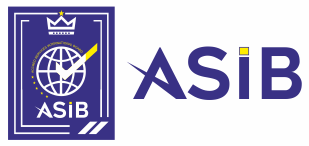ISO/IEC 17021 Accreditation
- Home
- ISO/IEC 17021
ISO/IEC 17021 Accreditation
Conformity assessment — Requirements for bodies providing audit and certification of management systems
ISO/IEC 17021 is an international standard that outlines the requirements for bodies providing audit and certification of management systems. In simpler terms, it is the benchmark for certification bodies to ensure they are competent and impartial in evaluating organizations' management systems.
There are three parts to ISO/IEC 17021, each addressing different aspects of the certification process. Part 1 covers the requirements for certification bodies to ensure they have the necessary competence and impartiality. Part 2 focuses on the auditing process and the requirements for conducting audits effectively. Lastly, Part 3 outlines the specific requirements for the certification of management systems for small businesses.
Any organization looking to certify its management systems can benefit from working with a certification body that is ISO/IEC 17021 accredited. This includes businesses in various industries, such as manufacturing, healthcare, and food safety, just to name a few. By choosing an accredited certification body, organizations can ensure that their certification is recognized and respected internationally.
ISO/IEC 17021 accreditation plays a crucial role in the certification process, ensuring that certification bodies are competent and impartial in their evaluations. By understanding the key components of ISO/IEC 17021 and its benefits, organizations can make informed decisions when choosing a certification body for their management systems. So, if you're looking to enhance your credibility and marketability, consider working with an ISO/IEC 17021 accredited certification body to take your business to new heights.
Benefits of ISO/IEC 17020 Accreditation
First and foremost, it enhances the credibility and trustworthiness of the certification body, as it demonstrates adherence to international standards and best practices. This, in turn, can help attract more clients and increase business opportunities. Moreover, certification bodies that are ISO/IEC 17021 accredited are recognized globally, making it easier to expand their reach and establish partnerships with organizations worldwide
- Enhances Market Access and Competitiveness: Accredited certifications are internationally recognized, enabling certified organizations to expand into new markets and meet regulatory or tender requirements more easily. For certification bodies, it signals reliability, attracting more clients and supporting global trade agreements.
- Provides Assurance of Quality and Reliability: Customers benefit from verified high-quality management systems, aiding in supplier selection and reducing procurement risks by eliminating guesswork in choosing credible certifiers. This leads to better decision-making and long-term partnerships.
- Drives Operational Improvements and Consistency: By requiring robust audit processes and ongoing competence development, the standard promotes consistent, high-quality services, which can help certified organizations improve efficiency, sustainability, and performance in sectors like manufacturing or energy management.
- Economic and Sector-Specific Gains: Accreditation can unlock opportunities like sustainable production initiatives (e.g., in agriculture) or expanded production for certified suppliers, ultimately boosting revenue and economic growth through differentiated, trustworthy services.
Management Systems
ASIB Accreditation on Management Systems



